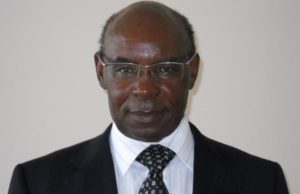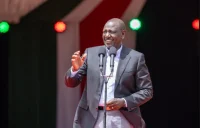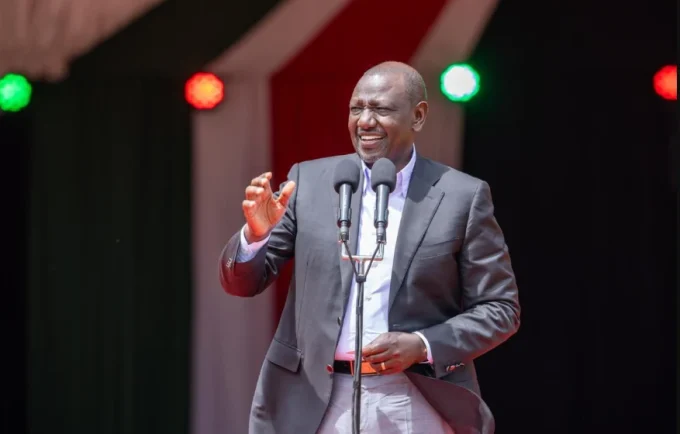Royal Media Services (RMS) staff today woke up to chilling news of an impending restructuring that will see over 100 employees leave, 30 of them in radio, starting today. A memo from the management says the difficult business environment in the broadcast industry had cut revenues and left it with no option but to rationalise its departments. [See full memo at the end of this article]
RMS, which owns Kenya’s leading TV station Citizen, is the country’s largest broadcast house with over 15 radio stations. “The past two years have witnessed various developments within the broadcasting industry that have adversely affected our business environment,” Group managing Director Wachira Waruru says in the redundancy notice released today morning. “As a result, the company is left with no choice but to reorganise its operations.”
Reorganisation, the corporate’s polite lingo for striking workers off the payroll, will mainly involve rationalisation of its various departments, including editorial, commercial and management.
SEE ALSO >> Compassionate S.K. Macharia recalls sacked editor
Rationalisation is geared at trimming the workforce through redundancy and leaving the company leaner and more nimble. Given the psychological impact that layoffs have on the affected staff and their families, RMS says it will conduct the exercise within the provisions of the law and the company will provide those affected with necessary support to help them manage the transition.
The announcement has clouded the mood among staff at RMS headquarters in Kilimani and correspondents across the country, with most fearing for the worst.
Early this month, the company sacked nearly 40 sales executives for failing to meet their advertising revenue targets for six months in what insiders say was more about the changing external environment of reduced advertising and increased competition.
Huge profits, large payroll
Media observers are struggling to come to terms with the fact that a media house that is seen to be very successfully is suffering cash-flow difficulties. RMS leads in various media categories including TV where its Citizen TV controls nearly 45% of the viewership. Its Radio Citizen is among the top three national radio stations nationally while it is number in most vernacular regions. The company even joined the vernacular TV segment with the launch of Inooro TV last year.

Business strategists say RMS could be paying the high price of over-expansion where it set up too many radio stations for political, rather than, business gains. For example, the Luhya community is served by three radio stations to suit its various dialects. Initially started with Mulembe FM, which served the entire Luhya, RMS then set up Vuuka for the Maragoli, Sulwe to serve the Bukusu, thus increasing its expenses and sharing out the advertisement among the three rather than growing.
New radio stations, it seems, are cannibalizing their big sisters.
The latest retrenchment at Royal Media Services comes just seven months after its Citizen TV fired some of its key reporters including Kendagor Obadiah, Evelyne Wambui, Pheona Kenga and Patrick Injendi, as well as several camera people.
Fraud among commercial managers
Insiders at Royal Media say the company makes ‘a lot of money’ but a good chunk of it goes to a cartel that has found creative ways of skimming off cash. “S.K. Macharia (chairman and owner of RMS) doesn’t know how the money is lost. Radio makes millions every month and we are surprised that the company is doing so badly,” said a journalist who works with radio but requested not to be named due to the sensitive nature of the matter.
Business Today has learnt that most of the managers heading various sales departments own advertising agencies. So when it comes to doing business with Royal Media they give huge discounts and bonuses to their “clients” which end up in their pockets instead.

![]()
These managers take-home pay is fat, while sales executives who do most of the footwork survive on commissions.
Technical guys often inflate prices of communications equipment and other services and make a kill in the process. “Transport guys will request for money for fuel, say Ksh20,000 to Bungoma or Mombasa and yet the vehicle will be fuelled one way by the company,” a person familiar with RMS operations says.
It’s an excuse, says KUJ
The Kenya Union of Journalists says media houses are abusing redundancy principle to lay off highly paid staff. “Royal Media Services has been making profits,” said KUJ Secretary General Erick Oduor. “I don’t see why it should opt for redundancy. This is an excuse to go for cheap labour. You will not be surprised when they start hiring fresh graduates and pay them meager salaries under ridiculous contracts.”
Royal Media, being private, does not publish its financial results but inside sources say it’s a ferocious money machine. Three years ago, S.K. Macharia, in an interview with Forbes Africa, estimated his company to be worth Ksh50 billion and said he would love to list it on the Nairobi Securities Exchange.
NEXT READ >> Ghafla buyout by Swiss firm flops
The fire-and-then-hire trend is raising concern among journalists, who are the main victims of restructuring in media. This is because no sooner does a media house declare journalists redundant than it starts hiring fresh ones to replace them.
Media under siege
The media industry has been suffering reduced revenues over the past two years due to the rise of digital media that’s taking up advertising, falling readership for print and consolidation of government advertising under the Government Advertising Agency. According to Patrick Quarcoo, the CEO of Radio Africa, the media industry lost KSh1.5 billion over the last one year alone and laid off over 550 personnel.

Broadcast has particularly been hit by the switch to digital broadcasting last year, which opened the industry to massive competition. There are more than 50 TV local TV stations vying for the same audience and advertising pie, leaving mainstream broadcasters like Citizen, NTV and KTN with dents on their revenues.
Most of the new players are niche broadcasters that have gone for specific audiences and advertisers, offering a better proposition to marketers and in the process hurting general broadcasters. Nation Media Group, for instance, attributes the Ksh130 million drop in its full-year revenues for 2015 to the digital migration. Its half-year revenues for this year fell too, and the company closed one TV and three radio stations to cut its operational costs.
DON’T MISS >> What next for Terryanne Chebet?
Standard Group was forced to fire over 100 employees last year to cut its payroll in the face of falling revenues that saw it record a loss of Ks400 million. Radio Africa has also laid off and there are strong signs of more people going as it is currently struggling to pay salaries.
Who’s eating media money?
Media insiders say media houses also have internal issues that have raised the payroll, where poaching has forced media houses to have ‘too many’ senior editors who blow huge salaries and whose roles often overlap.
RMS has many top management positions namely: CEO Waruru Wachira, Chief Operating Officer Farida Karoney and Editorial Consultant Peter Opondo, as well as seven Managing Editors, News Editors and then reporters. The managing editors are Nixon Ng’ang’a, Jemima Mungai, Mercy Oburu and Rashid Ibrahim, among others.
Also, Citizen TV is said to have the highest number of TV anchors compared to its industry peers like NTV and KTN.
As tension rises at Royal Media, other media houses are doing their maths and could follow suit soon. “It’s a wake-up call to all journalists to join KUJ,” said Mr Oduor of KUJ. “This will help them to collectively fight capitalism and defend jobs in the industry.”
See the MEMO



















































![Pula Co-Founders and Co-CEOs, Rose Goslinga & Thomas Njeru. Pula provides agricultural insurance and digital products to help smallholder farmers manage climate risks, improve farming practices and increase their incomes. [ Photo / Courtesy ]](https://businesstoday.co.ke/wp-content/uploads/2021/01/Pula-Co-Founders-and-Co-CEOs-Thomas-Njeru-Rose-Goslinga.jpg)



























































Leave a comment